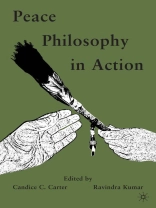This book documents recent and historical events in the theoretically-based practice of peace development. Its diverse collection of essays describes different aspects of applied philosophy in peace action, commonly involving the contributors’ continual engagement in the field, while offering support and optimal responses to conflict and violence.
Table of Content
Introduction; R.Kumar PART I: POLITICAL APPLICATIONS Peace Philosophy of Gandhi: Reality, Evolution and Application in the First Decade of the Twenty-First Century; R.Kumar War Renunciation and Abolishment by Japan; K.Yamane Retooling Peace Philosophy: A Critical Look at Israel’s Separation Strategy; K.J.Peterson-Overton, J.D.Schmidt & J.Hersh PART II: CURRICULAR APPLICATIONS History Curriculum with Multiple Narratives; E.Yogev ‘Us and Them’ Challenges for the Indian Classroom; T.Setalvad Peace Education in Elementary Teacher Education of Tamil Nadu; D.Paul PART III: PROGRAM APPLICATIONS Restorative Practices for Reconstruction; C.C.Carter Cosmopolitanism as a Philosophical Foundation of Post-Yugoslav Peace Studies in Higher Education; A.Wisler Children Are Made to Love: Liberation Education in India; M.Hubert Conclusion; C.C.Carter
About the author
Candice C. Carter is Associate Professor in the Department of Childhood Education, Literacy, and TESOL, College of Education and Human Services, University of North Florida, USA.












